Kate Larking's Blog: Anxiety Ink, page 33
July 24, 2016
Question You Assumptions
I promised I’d do a post on questioning your assumptions! Others have said it before, much better than I’m about to, but here goes…
Have you ever wondered how to avoid falling into Trope City? How to make characters leap from the page rather than fall flat, two-dimensional?
Question your assumptions. Challenge them.
Why is this character male? Or white? What happens if you change that?
My side characters and set dressing characters tend to come across as cardboard cutouts in early drafts. I put them there to serve a narrative role, and that is all they do. They are dull and boring, which makes their scenes similarly uninteresting. Then I remember to question.
So I make the blacksmith a woman. I make the wealthy and politically powerful man dark-skinned.
Wait: why did the wealthy and politically powerful character default to a man?
See? We constantly make assumptions. The walk-on characters get the brunt of it because most of us don’t plot them out in exacting detail. But it’s amazing how much they can influence the mood and tone, and the narrative as a whole.
And it’s not just characters! If you’re like me, the weather in your story is usually good. If it’s storming, it’s because things are going to hell in a hand basket. Challenge your setting – why here? Why now? What if it were here or then?
Question. Constantly question. Don’t assume – that way lies lazy writing. Do I keep every idea I come up with? Hell, no. Some of those are just terrible.
But sometimes, opening myself up to other options opens up the story in a way I hadn’t even considered possible. It becomes instantly richer and deeper. It’s really kind of amazing.
The post Question You Assumptions appeared first on Anxiety Ink.
July 21, 2016
Do Girly Books Exist? I Don’t Think So
Warning, I may go into slight rant mode with this post because a pet peeve has been piqued.
A few weeks ago, my Teenreads newsletter hit my inbox. While I no longer qualify as a teen, teen book blogs cover YA like nothing else, so I keep up with a few them. Usually Teenreads is an excellent source of entertainment and connection. This time around, this bit leapt off the page at me, and not for a good reason:
“…we’ve been noticing a trend lately where many books seem to be, well, girly. Chances are, many of you guys don’t want to read about female friendships and complicated love triangles, and it can be hard to find young adult books that celebrate boys.”
After this excellent note, there’s a link to the “guy-brary.”
Have you seen the scene in The Avengers where the Hulk grabs Loki and smashes him into the floor? That’s what I’d like to do to this newsletter.
There are so many things to unpack in this comment –a comment the writer and editor of the newsletter likely thinks is innocuous SOMEHOW– that I don’t know where to start.
How about: boy readers wouldn’t know they shouldn’t like these “unmanly” elements until you pointed it out. Maybe you should watch The Mask You Live In?
Or how about: what makes male friendships more important? Boys fall in love too, so why shouldn’t they be interested in a love element? We’ll overlook the overuse of the love-triangle in YA for the sake of argument here.
Or how about –and this is my favourite– : EVERYTHING CELEBRATES BOYS! In recent years female writers and their female characters have elbowed their way into YA, which might be why it seems there are a lot of them –they’re finally getting their due recognition and leveling the literary playing field.
Now I’m going to turn a little inward here. If I were to label myself, or have someone else label me, I confess I’d be insulted to be called a girly girl (yes, I see the patriarchal irony there). But, I must admit, I fit some of the prescribed parts. I also fit a lot of parts that do not qualify as girly in the least. I’m a complex creature if you can believe it.
Reader-wise, I’m an avid romance fan, but I read very little contemporary stuff because I don’t identify with it –in YA or adult fiction. My main issue: I’ve never been boy or man crazy, and obsessing over snagging myself a husband…well, excuse me while I roll on the floor and laugh at that mental image. I’m not saying all contemporary YA books are devoted to those things, but many of them centre on those types of desires, which I can’t regularly connect with when that’s the main plot. I like dark and terrifying elements along with the romance.
I’m definitely more inclined to read Ivory and Bone and Property of the State (two “guy-brary” reads) than One Paris Summer (the first book in the newsletter after the “guy-brary” link), and last I checked I am not a guy.
On the whole, I know all of these labels are meaningless, but teens shouldn’t be subjected to this negative crap. Let’s focus on the aspects people are interested in in YA books, like relationships, dealing with grief, saving the world, shaking up the establishment, and not give a shit about whether the main character doing all that is a boy or a girl. No one cares until you make them think they should care.
One of the reasons we read is to learn about people who aren’t exactly like us, to develop our humanity by realizing and celebrating the differences between people. That means boys need to read about girls and girls need to read about boys. Read outside the box.
Follow up note: the next installment of the Teenreads newsletter that arrived in my inbox had this as part of the “guy-brary” description:
“…we decided to curate a collection of books coming out in May-June that featured male protagonists, male narrators, or just plain great storylines that all genders can relate to. Now we’re back with Part 2, which focuses only on boy-friendly books releasing in July-August. Whether you’re looking for a fun beach read, a hard-hitting story full of drama, or yes, even a romance, you’re sure to find something great on our Books to Add to Your Guy-brary…”
Obviously I wasn’t the only one this initially stood out to. I still think this is flawed, but it’s better. Small victories.
The post Do Girly Books Exist? I Don’t Think So appeared first on Anxiety Ink.
July 19, 2016
The Best Way to Combat Writer’s Block: Play
Ways to combat writer’s block is always high up there on a author’s priority list. Between all the ideas we have, the deadlines we face, writer’s block is an elusive beast we get to deal on an ongoing basis.
Yeah, I said ongoing. Because you can’t completely overcome it. Writer’s block tends to manifest itself in different ways. You could be starting to write an idea before you have fully formed your thoughts around it. Or you overthink it, striving for perfection but the idea is constantly shifting.
For me, the most common source of writer’s block is as a manifestation of anxiety in the form of fear. I’ve had all the fears:
Fear of failure, with a side of flat out humiliation for even trying
Fear of rejection, that my stories are no good to anyone, not even myself
Fear of mediocrity, being unnoticed and dismissible
Fear of success, and the negative emotions from my peers, or even being dismissive of that success myself
All these feelings accompany me to the blank page when I need to write.
The conventional solutions to combat writer’s block are things like going for a walk, listening to music, cleaning the house…
While, yes, those strategies can stimulate ideas, the issue I have isn’t ideas. It’s fear.
You combat writer’s block, those fears, with play.
Start writing on post-its instead of in a journal or on the blank document screen. Doodle on the margins of your edit. Create, scribble, draw, poke and so something where you know the final outcome of that tidbit won’t be published. There aren’t high expectations on post-its. Lost your structure. Attempt freeform poetry. Toss away the rulebook and play.
 Source
SourceAnd enjoy it. If it doesn’t work out, toss it. Try again. Start over. Draw darker overtop of the hesitant sketch lines you started with.
What stops us from writing, that fear, is the expectation what we have to write something worthwhile. So combat writer’s block with play.
The post The Best Way to Combat Writer’s Block: Play appeared first on Anxiety Ink.
July 17, 2016
Character Development: Small Things
It’s such a small thing to have your character pick up the phone and be the one to call. But character development is in the small things.
Your main characters need to be people who do things – not those to whom things are done. (That a huge reason most writing advice discourages the passive voice: it robs the characters of agency.)
Of course you will put your characters through hell. They will react more than act much of the time, but that just makes those small moments of agency all the more important.
In the story I’m revising, my character received a perfectly timed phone call. She’d already figured out this was a man she needed to talk to and then he called her. Synchronicity at its finest. These things happen all the time in reality, but put it on a page and it becomes unbelievable.
In all the drafts, he called her at this point. He may have even had a good, solid reason in one of those drafts, but that was long ago.
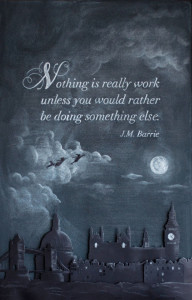 Art by Danger Dust
Art by Danger DustWho am I kidding? I gave him a flimsy excuse to call her because I was being a lazy writer.
Why did I never consider having my main character pick up the phone?
Because I never questioned my assumptions. (Hint: that’s lazy writing.) Questioning assumptions is a whole other post. Look forward to that. In the meantime, please trust me when I say this is hugely important.
So she picks up the phone. She calls him. It’s such a small choice, but it gives her agency. She takes the action. And it tells the reader that she has figured out what he is without relying on exposition.
One comment I received from a few early readers was that despite the bad things that happen to the main character, her path through the story is too easy. Things fall into place for her and make it an easy journey.
While she is a small part of a much larger story, the primary story I’m telling is hers. Events tend to push her around, but when she directs none of that for herself, she becomes boring. Passive.
Just because the larger story pushes her around doesn’t mean she can’t make her own choices and decisions along the way.
Something so small as picking up the phone is still a choice she made. It never ceases to amaze me how the smallest changes can have such a large impact on story and character development.
The post Character Development: Small Things appeared first on Anxiety Ink.
July 14, 2016
MacGuffin
Have you ever heard of a MacGuffin? Before June 16th, I don’t know that I had ever heard the word. Perhaps in passing, but without having a clue what it meant, it didn’t make an impression. After learning all about it, I can’t believe no one has never explained the genius behind MacGuffin to me. As a writer, I’m shocked I was so in the dark.
Thanks to one of my words of the day emails, I now know that “MacGuffin” is a noun meaning: an object, event, or characters in a film or story that serves to set and keep the plot in motion despite usually lacking intrinsic importance.
Moreover, I also know the etymology of the word, which I think is significant enough to share:
The first person to use MacGuffin as a word for a plot device was Alfred Hitchcock. He borrowed it from an old shaggy-dog story in which some passengers on a train interrogate a fellow passenger carrying a large, strange-looking package. The fellow says the package contains a “MacGuffin,” which, he explains, is used to catch tigers in the Scottish Highlands. When the group protests that there are no tigers in the Highlands, the passenger replies, “Well, then, this must not be a MacGuffin.” Hitchcock apparently appreciated the way the mysterious package holds the audience’s attention and builds suspense. He recognized that an audience anticipating a solution to a mystery will continue to follow the story even if the initial interest-grabber turns out to be irrelevant.
Thanks Merriam-Webster!
Wikipedia better defines the MacGuffin device in terms of character: In fiction, a MacGuffin is a plot device in the form of some goal, desired object, or other motivator that the protagonist pursues, often with little or no narrative explanation. The specific nature of a MacGuffin is typically unimportant to the overall plot.
A bit of Google searching later, I found some object examples as I tried to get to the core of the MacGuffin: the treasure map (apparently one of the earliest), the list, the cup (read chalice or Holy Grail if you will), the suitcase, the rare antique object, secret plans, letters, the ring –the list could go on forever.
If you do your own Google search, you’ll see pages and pages of movies come up. By now I’m guessing you’re wondering at my excitement over this new writing term. Sure, it’s interesting but you’re not a bunch of movie buffs. Hold on, I’m getting to the really great part. While the movie examples are useful to get an idea of a MacGuffin, I wanted some book-specific information.
That search led me to this superb article, “What Is A MacGuffin?” by Michael Kurland, about how all stories of fiction have a MacGuffin whether the writer realizes it or not. The real takeaways though:
“Being aware of the MacGuffin in your own story, carefully crafting it to meet your needs, can improve the internal logic of the story, strengthen the characters’ motivation, and increase the story’s impact.”
“The MacGuffin isn’t merely the goal the hero is striving for; it’s often also the reason for the overwhelming odds.”
“In order to properly motivate your characters, the MacGuffin has to be something that is plausible and worth the trouble.”
Those are my teasers for you because Kurland’s article is chock full of invaluable information (not to mention examples) that just might help you take your character motivation –and perhaps even development– to the next level. I’m excited to take my MacGuffin knowledge and go through my own stories with a magnifying glass to see how I can better develop my characters’ motivations.
What about you? Was this new information for you or old hat? Do you have anything to add?
*Image source.
Follow Us:




The post MacGuffin appeared first on Anxiety Ink.
July 12, 2016
Childhood Obsessions – A Creative Excuse to Play Pokemon Go
Pokemon Go hasn’t been released in Canada yet. But that little fact didn’t stop me from obtaining it. Of course, since I obtained it the day before this post goes live, what else am I going to write about?
When I was a kid, I loved a few things:
Crafts–beadwork in particular
Sailormoon (and related magical girl anime like Magic Knight Rayearth, Card Captor Sakura…)
And Pokemon
I played and enjoyed Pokemon as a kid–it was only of the few games that I enjoyed. It was simple in regard to levelling and battling. With the adorable creatures and the “gotta catch ’em all” collectable tactic, I was hooked.
Exploring the neighbourhood with Pokemon Go, I met other people at a PokeStop (also not impeded by the fact that Pokemon Go isn’t out in Canada yet) and caught a few more Pokemon before I had to run to an appointment. One of those guys had lost 5 pounds in a week just with Pokemon Go.
So what does Pokemon Go have to do with writing, anyway?
The things I enjoyed in my childhood really do play a significant factor into my creative process. Stories I lovingly recall from my childhood capture my imagination. They feel magical to me, intoxicating and brightly coloured.
On creative excuse to play Pokemon Go I had in my back of my mind was Jim Butcher. After all, he came up with a best-selling book series based on it:
How did you come up with the original idea for CODEX ALERA? We’ve heard rumours that it involved a bet on whether you could combine the Roman empire and Pokémon… is that true?
The bet was actually centered around writing craft discussions being held on the then-new Del Rey Online Writers’ Workshop, I believe. The issue at hand was central story concepts. One side of the argument claimed that a good enough central premise would make a great book, even if you were a lousy writer. The other side contended that the central concept was far less important than the execution of the story, and that the most overused central concept in the world could have life breathed into by a skilled writer.
It raged back and forth in an ALL CAPITAL LETTERS FLAMEWAR between a bunch of unpublished writers, and finally some guy dared me to put my money where my mouth was, by letting him give me a cheesy central story concept, which I would then use in an original novel.
Me being an arrogant kid, I wrote him back saying, “Why don’t you give me TWO terrible ideas for a story, and I’ll use them BOTH.”
The core ideas he gave me were Lost Roman Legion and Pokémon… Thus was Alera formed.
Source
I have been under a ton of stress lately. Between work events and overtime, comic expos and festivals, I’m tapped out. Monday, all I did was sleep. Yesterday, I downloaded Pokemon Go. I deserved to have some fun and relax. There is no better excuse to play Pokemon Go than that…right?
So, between obsessively visiting Pokestops in the area and randomly researching how bookstores and libraries plan to lure players to their stores, I have to get back to work today. This week is the DO ALL THE COMIC PLANNING WEEK!
Follow Us:




The post Childhood Obsessions – A Creative Excuse to Play Pokemon Go appeared first on Anxiety Ink.
July 10, 2016
Character Conflict: Divided Loyalties
To get through a story writing compelling characters, those characters all must have goals. They have things they want to obtain and people they want to protect. But what happens when those loyalties – those goals – come into conflict with each other?
You get an explosive combination.
As a writer, you give shape to the worlds in your head, but you are not a beneficent god. You throw obstacles in the way of your heroes and you give the villains nearly every advantage. You send your characters through forge them into the people you need them to be.
If giving characters goals is Writing 101, then giving them conflicting goals belongs in the advanced class. It’s something I struggle with. I adore being mean to my characters, but the heartbreak of making them choose between terrible options is tough even for me.
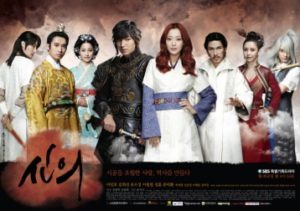 .
.
July 7, 2016
Book Challenge: Non-fiction Edition
As I happily decided to write this non-fiction edition of my book challenge post from months before, I have to admit I’ve learned something about myself this go: I read a vast amount of non-fiction, I mean in my head there is a treasure trove of information that I regularly tap into, but I have not read a lot of non-fiction books.
I tend to read a lot of excerpts from books, a lot of history in the form of contextual essays in fiction anthologies, articles, and the like. I did not know this about myself! And it’s something I must now endeavor to change!
Here is my list of three non-fiction books I think everyone should read at least once:
 Sex with Kings, by Eleanor Herman. This is the first book that paints a wide picture of the royal bedroom without the salacious angle one would expect while looking at the cover. I was ready for a slightly sarcastic, raunchy, king degrading read when I bought it on a whim. Instead, what I got was an in-depth look at why many of the world’s Kings were adulterous from a very human outlook without relying on the “I’m the King so I can do what I want” angle. This book pointed out a lot about political marriages and how it dehumanized both the men and women involved.
Sex with Kings, by Eleanor Herman. This is the first book that paints a wide picture of the royal bedroom without the salacious angle one would expect while looking at the cover. I was ready for a slightly sarcastic, raunchy, king degrading read when I bought it on a whim. Instead, what I got was an in-depth look at why many of the world’s Kings were adulterous from a very human outlook without relying on the “I’m the King so I can do what I want” angle. This book pointed out a lot about political marriages and how it dehumanized both the men and women involved.
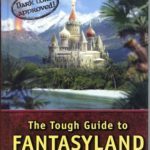 The Tough Guide to Fantasyland, by Diana Wynne Jones. If you ever want to write in the fantasy genre, I feel you owe it to yourself to give this book a read. Even if you’re not a writer, it is worth your time! My only warning: you’ll never be able to enjoy hackneyed works again. This is easily the most fun reference book I’ve ever read and, what’s more, you learn a lot about the genre and its tropes while you chuckle. I don’t think learning gets much better than that.
The Tough Guide to Fantasyland, by Diana Wynne Jones. If you ever want to write in the fantasy genre, I feel you owe it to yourself to give this book a read. Even if you’re not a writer, it is worth your time! My only warning: you’ll never be able to enjoy hackneyed works again. This is easily the most fun reference book I’ve ever read and, what’s more, you learn a lot about the genre and its tropes while you chuckle. I don’t think learning gets much better than that.
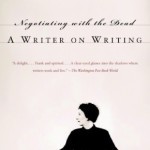 Negotiating with the Dead, Margaret Atwood. I quote it so often now that it would be unforgivable to leave it off my non-fiction list. While it’s heavy on the academic writing, it’s very accessible. The voice isn’t academic, but Atwood does have the expectation that her readers know at least the bare minimum about the evolution of English as a discipline since its inception, and about the major eras of English literature. Beyond that, I find the book an important read for female writers because it puts our work in a context that many male writers who write about writing don’t touch on.
Negotiating with the Dead, Margaret Atwood. I quote it so often now that it would be unforgivable to leave it off my non-fiction list. While it’s heavy on the academic writing, it’s very accessible. The voice isn’t academic, but Atwood does have the expectation that her readers know at least the bare minimum about the evolution of English as a discipline since its inception, and about the major eras of English literature. Beyond that, I find the book an important read for female writers because it puts our work in a context that many male writers who write about writing don’t touch on.
What non-fiction books do you consider must reads? Obviously I want to augment my list ASAP!
Follow Us:




The post Book Challenge: Non-fiction Edition appeared first on Anxiety Ink.
July 5, 2016
Should a Writer have a Blog?
Behind the scenes here at Anxiety Ink, we have been doing a lot of work. We are getting ready to give the site more structure, a more unified vision, and keep Anxiety Ink in play. But the work has triggered a lot of research and questions. The research uncovers more question, the questions bring up more doubt. One of those questions impacted me personally: should a writer have a blog to begin with?
All the blogging research…
I’ve been researching until I couldn’t sleep, images of hashtags pestering me in the wee hours. I’m full of information on:
Websites
Blogging
Design
Monetization
Branding
Social media…
Part of the research into blogging is discouraging. We don’t get a lot of visitors here. Fewer people comment. A lot of the time it feels like we are sending sealed letters into a void, unsure if anyone is actually reading them besides the three of us.
It can be especially discouraging when you start feeling comparisonitis. Sites doing a hundred times better than us in less than a third the time. They have engaged and loyal followings. They can afford to hire website designers and virtual assistants and still have time to create–
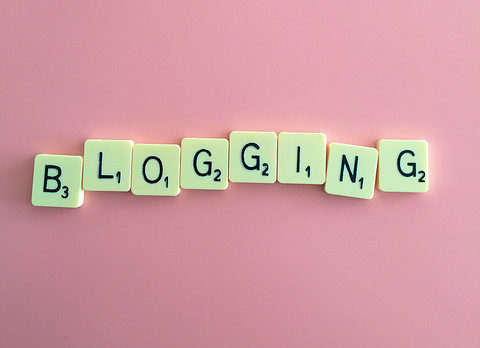 Source
SourceI’m going to cut those thoughts off there. It isn’t that those thoughts aren’t valid. They are. And I get to the point where I ask myself, why am I even bothering to keep a writing blog? Why do any new writers keep writing blogs? Should a writer have a blog in the first place?
But there is something that both those bloggers and us at Anxiety Ink have in common:
Passion.
Elisa, Melissa, and I all have a passion to strive to become better, more confident writers. That applies to both our non-fiction blog posts and our creative endeavours. Who am I kidding–it applies to our lives. We writers strive, encourage, and motivate each other. And we want to share our struggles because every writer faces anxiety in one way or another, either with their creative work or accompanying nonfiction work.
So. Should a writer have a blog?
It depends on who you are. You have to ask yourself what you are motivated to share. Will you be able to keep it up on your own or do you need the accountability of a group of peers?
For the three of us at Anxiety Ink, we are together as we face our anxieties head-on, offer a shoulder to lean on when needed, and celebrate each other even as we face the mundane writerly struggle of a blank page.
The passion that gives us that strength? That’s worth sharing and blogging about.
We certainly hope that someone will be impacted by our strength. We know we support and encourage each other. So even if it is just the three of us impacting each other–that’s worth blogging about.
What’s new at Anxiety Ink?
In other news, we have a new theme on the site! We hope you like it since it means you can read these files on your mobile device easier!
We also have started an email newsletter. If you like what we have to offer, please consider signing up so you can follow our journey–the highs and lows of it. We won’t email more than once a month! Just click the link in the sidebar (or at the footer if you are on mobile).
Follow Us:




The post Should a Writer have a Blog? appeared first on Anxiety Ink.
July 3, 2016
Short Story Problems
I recently realized that I haven’t touched a short story in months. Maybe even a full year. Yikes!
Focus has a lot to do with that. Are you sensing how this is a recurring theme for me?
I though it was funny how short stories seem to require more focus from me than novels, so I decided to unpack that to figure out why. Since a novel has more characters and plot threads and twists and settings and details to remember – to the extent that some writers fill books and binders with almost encyclopedic knowledge – shouldn’t that require more focus? After all, people turn to reading short stories when their full lives don’t leave time or space for novels. It only makes sense that writing follows the same pattern.
And there’s always the distinct possibility that I’m just weird. Never rule that out.
Part of the issue is that there are different types of focus. One type is the kind that carries you through the completion of a story. That’s a focus I never used to have, but I’ve managed to develop over the last ten years. This sort of focus for me is deeply rooted in my love of the story I’m drafting at the time, so it’s (now) easy to sustain long term.
But if a novel is a marathon, a short story is a sprint. They’re different specializations.
The focus I require for a short story is more intense and consuming. I do not have the many intricacies of a novel to hold me in love with the story, so I have to draft it over as short a time as possible. If I don’t have, say, two hours to block out with no interruptions, I won’t even start. It’s not worth it if I can’t really get into the story, and the words that do come out will feel half-assed and mediocre, at best. At worst, I may lose interest in the story entirely.
Short stories themselves as a narrative form are more focused. They have to be. Otherwise, you end up with either something that is more like a novel excerpt or some amorphous thing in which your readers can’t find the story. So for me, at least, writing them requires a similar focus.
For now, I’ll have to stick with novels. They’re still my first writing love, after all, so it’s not such a bad fate. But I miss short stories.
The post Short Story Problems appeared first on Anxiety Ink.
Anxiety Ink
- Kate Larking's profile
- 53 followers



